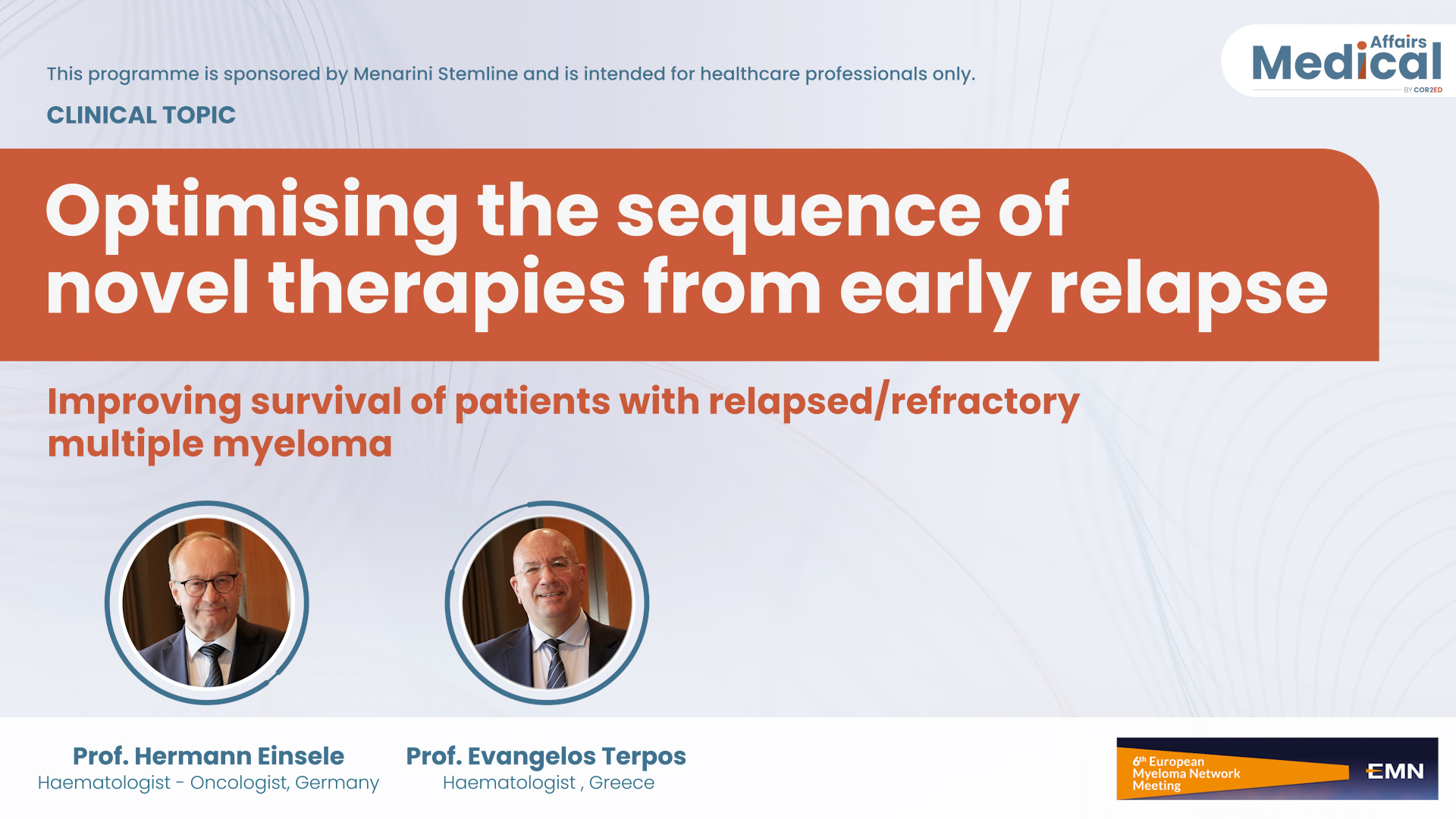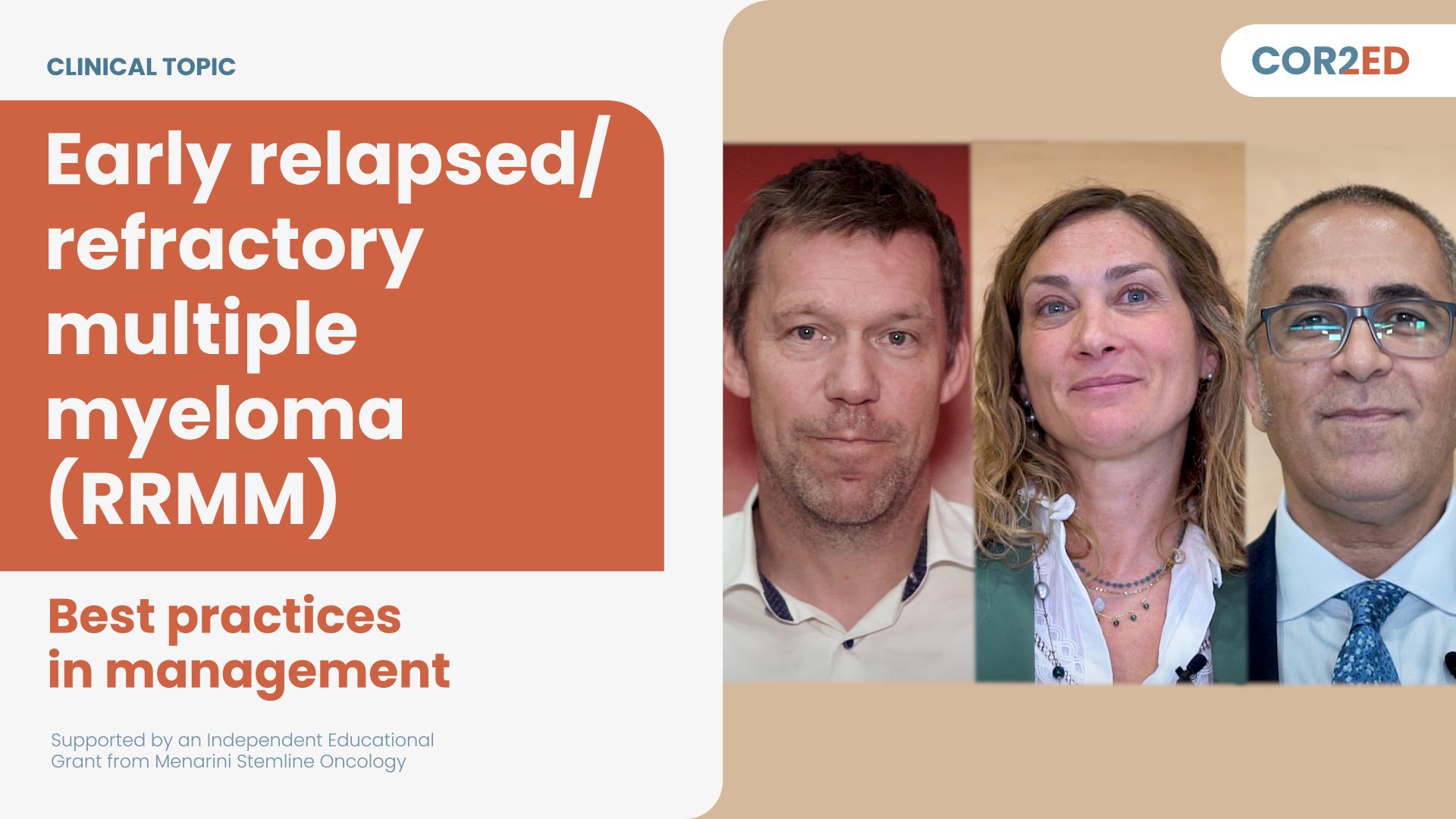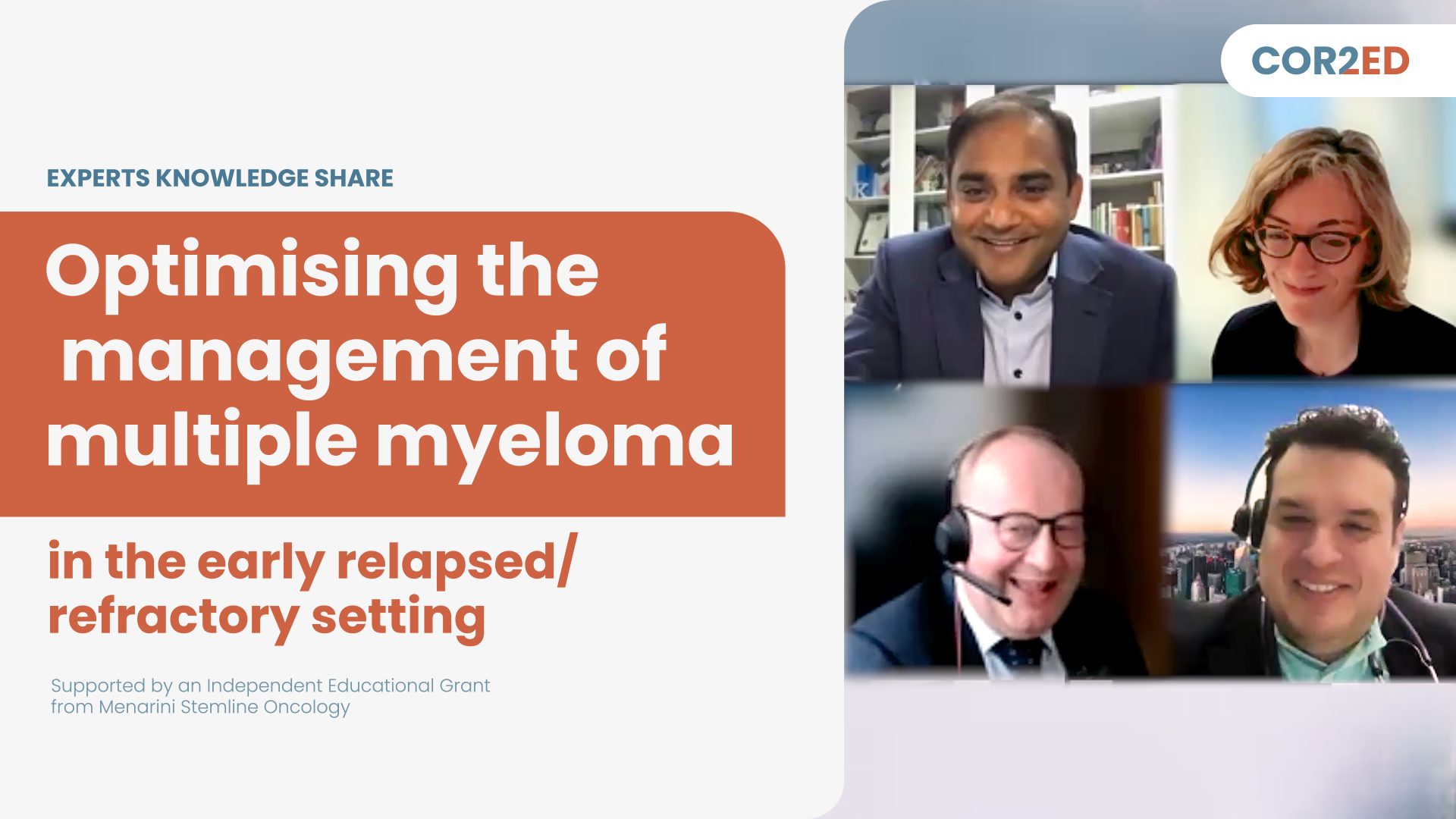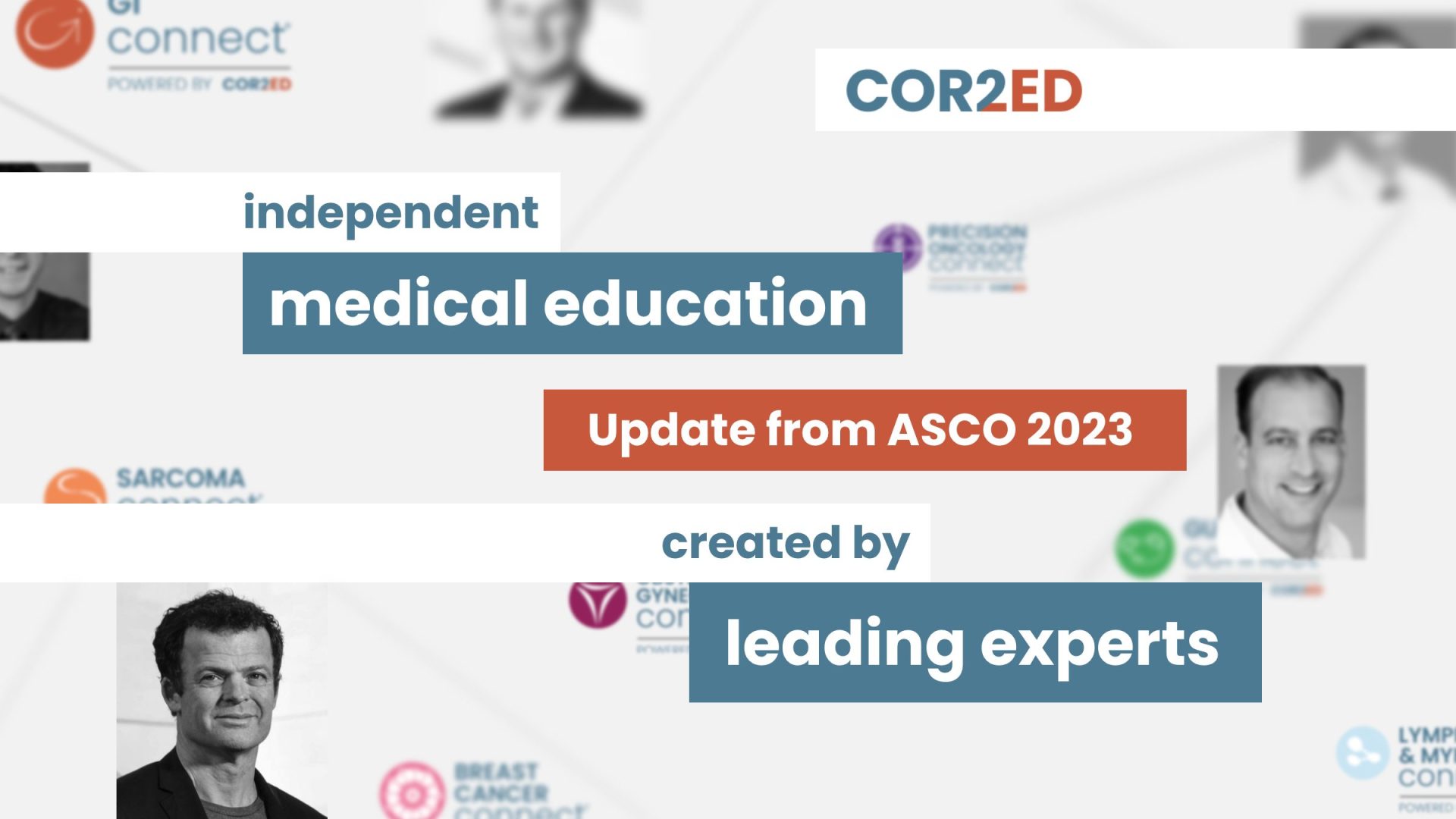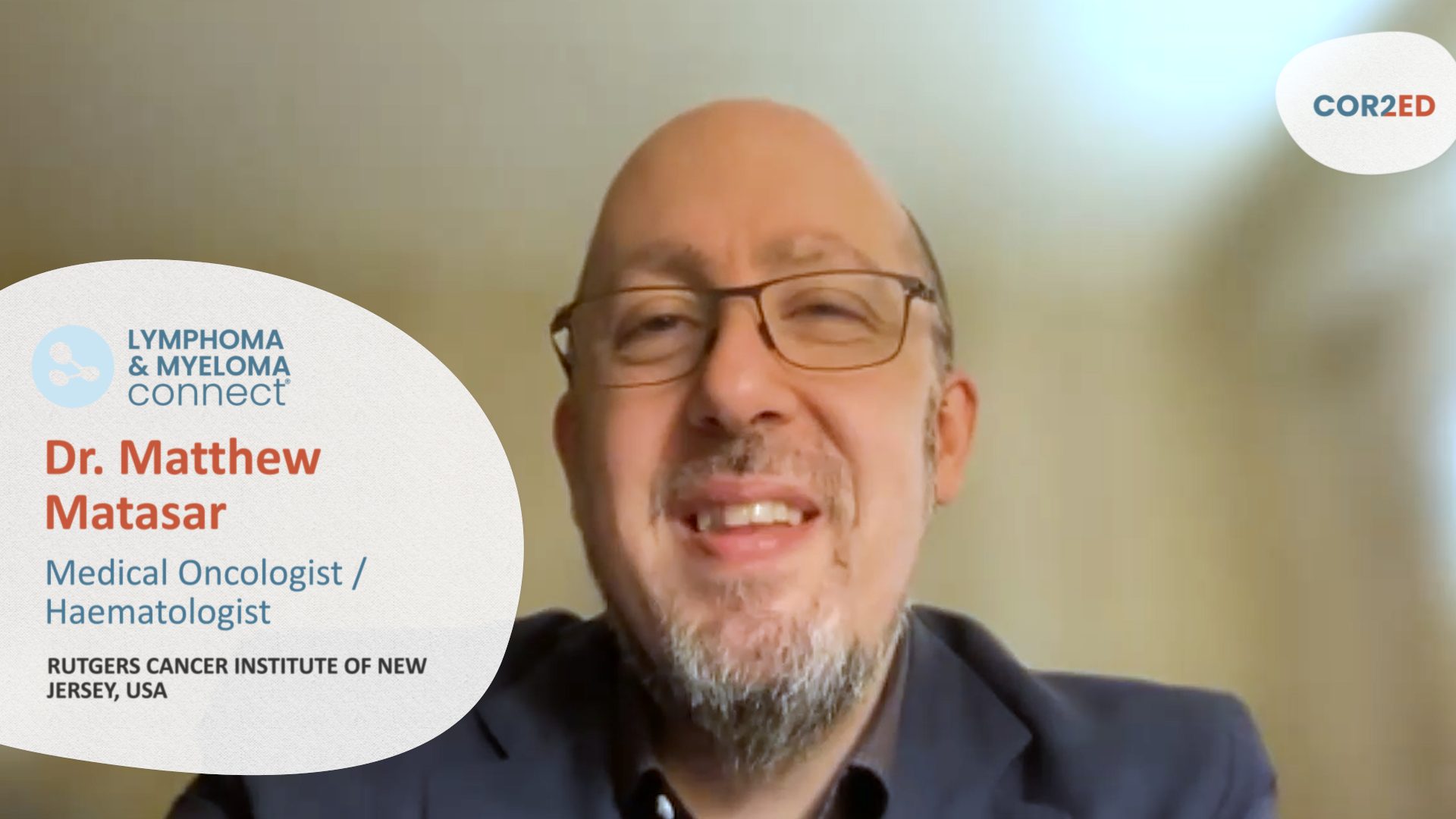Update on Autumn Congresses in Multiple Myeloma
Introduction
Welcome to Lymphoma and Myeloma CONNECT. I’m Claudio Cerchione and I work in Istituto Scientifico Romagnolo per lo Studio e la Cura dei Tumori Dino Amadori for Meldola, located in the Northern part of Italy in Europe.
In this video, I will focus on a meeting summary of the September 2021 congresses in Multiple Myeloma (MM): the International Myeloma Workshop, Society of Hematologic Oncology from Houston, and Society of Hematologic Oncology (SOHO) Italy, which was held in Rome.
SOHO Italy
At end of September we have organised the 3rd edition of the SOHO Italy conference in Rome, organised with the colleagues and friends from the MD Anderson Cancer Centre from Houston. It was an incredible conference in which we had the opportunity to focus on all haematological malignancies. In particular we had great sessions on the preclinical and clinical approach to MM. We had opportunity to share our knowledge and to compare the management of our patients between different countries. In particular, we focused on the inclusion of monoclonal antibodies, anti-CD38, as the new backbone in newly diagnosed patients and the novel opportunities that we are going to try in clinical trials for our relapsed/refractory patients, in particular selinexor, belantamab, bispecific antibodies and CAR-T. We also discussed the rule of MRD, which has to be strongly present in our daily clinical practice because it is an important tool to deeply understand the response of our patients.
IMW
September was an incredible month for MM. We had the opportunity to participate in the International Myeloma Workshop conference, which was held in Vienna. It was like a reopening of conferences after the COVID pandemic.
Newly diagnosed MM
MAIA trial
In particular I want to focus on the newly diagnosed MM setting, in which we have a new backbone: daratumumab. This has been added in the phase 3 MAIA study to lenalidomide/dexamethasone in transplant ineligible newly diagnosed MM. We know from the updated efficacy and safety data after almost 5 years of median follow-up, that efficacy data has shown a significant survival improvement. The addition of daratumumab to lenalidomide/dexamethasone led to a 32% reduction in risk of death. Even if median progression free survival (PFS) was not reached in the daratumumab arm, we know that there is an excellent improvement in PFS without any new safety concerns with the longer follow up. I think this can be the new standard of care in transplant ineligible patients, according also to the updated data.
Dara-KRd induction and consolidation
About the newly diagnosed MM transplant eligible setting: dara added to KRd induction, with autologous stem cell transplantation and dara-KRd consolidation according to MRD status could be another wonderful opportunity. Maybe the quadruplet is an excellent deep response opportunity that we can consider, hopefully also in our future daily life. MRD was evaluated by NGS and the primary endpoint was to evaluate MRD at different time points. I think that this is a confirmation that the monoclonal-antibody-based quadruplet therapy with autologous stem-cell transplantation and MRD-response-adapted consolidation therapy leads to a higher rate of MRD negativity in newly diagnosed MM. I think MRD surveillance could be an alternate opportunity to indefinite maintenance with an MRD-driven consolidation therapy which can be following induction with a quadruplet.
Relapsed/refractory MM
CARTITUDE-1 trial
In the relapsed/refractory setting, we are going into the era of CAR-T. I think that the updated results from the CARTITUDE-1 clinical trial with cilta-cel, a BCMA-directed CAR-T therapy, has shown wonderful results in terms of efficacy, with overall response rate of about 98% and a stringent complete response of 80%. This is something we would have never dreamed of in such a difficult to treat population with several lines of previous treatment. MRD negativity occurred in about 92%. About safety: we know that the most common grade 3/4 haematological adverse events were neutropenia at 95%, anaemia at 68% and leukopenia at 61%. But the main issue that we consider in CAR-T treatment is CRS. We know that 95% went into CRS, but only 4% of these were grade 3/4 and it resolved in all cases but one. So, I think that a single infusion of cilta-cel yielded early, deep and durable responses, also in heavily pre-treated patients, with manageable safety. I think that this could be the basis to investigate cilta-cel in further clinical trials, also in earlier lines of therapy, and in particular in outpatient settings thanks to this manageable approach that we have seen also from this wonderful updated analysis.
Iberdomide combination therapy
Other opportunities in the relapsed/refractory setting include iberdomide, which was presented in this trial in combination with daratumumab, carfilzomib, bortezomib in three different cohorts of patients treated with more than two lines for the dara and carfilzomib arms versus one line in the bortezomib arm. Even though the number of patients treated in this trial was not so big, I think that the overall response rate of 46% in the daratumumab arm, 56% in the bortezomib arm and 50% in the carfilzomib arm makes this another encouraging opportunity that we have available in MM. In particular, iberdomide in combination with carfilzomib and dexamethasone has shown more than very good partial response in 38% of patients. I think this could be the basis to future evaluation, that is currently ongoing in phase 3 clinical trials with this novel opportunity.
More information
I want to thank you for the attention, and I want to encourage you to follow the Lymphoma and Myeloma CONNECT webpage, on www.lymphomaconnect.info or via Twitter, LinkedIn, Vimeo and the mailing list. And I think this is an excellent way to get updated about MM and lymphoma. Thanks to the major updates from the most important conference in the world. I think these projects really include the best experts worldwide about these two settings of patients. I want to thank the staff for the wonderful work they are doing in these really excellent projects.
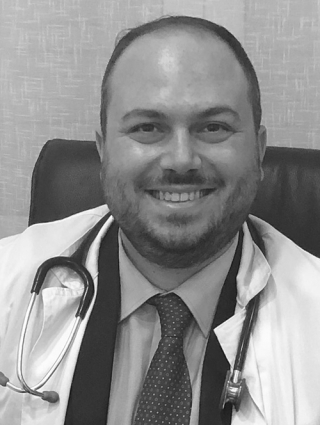
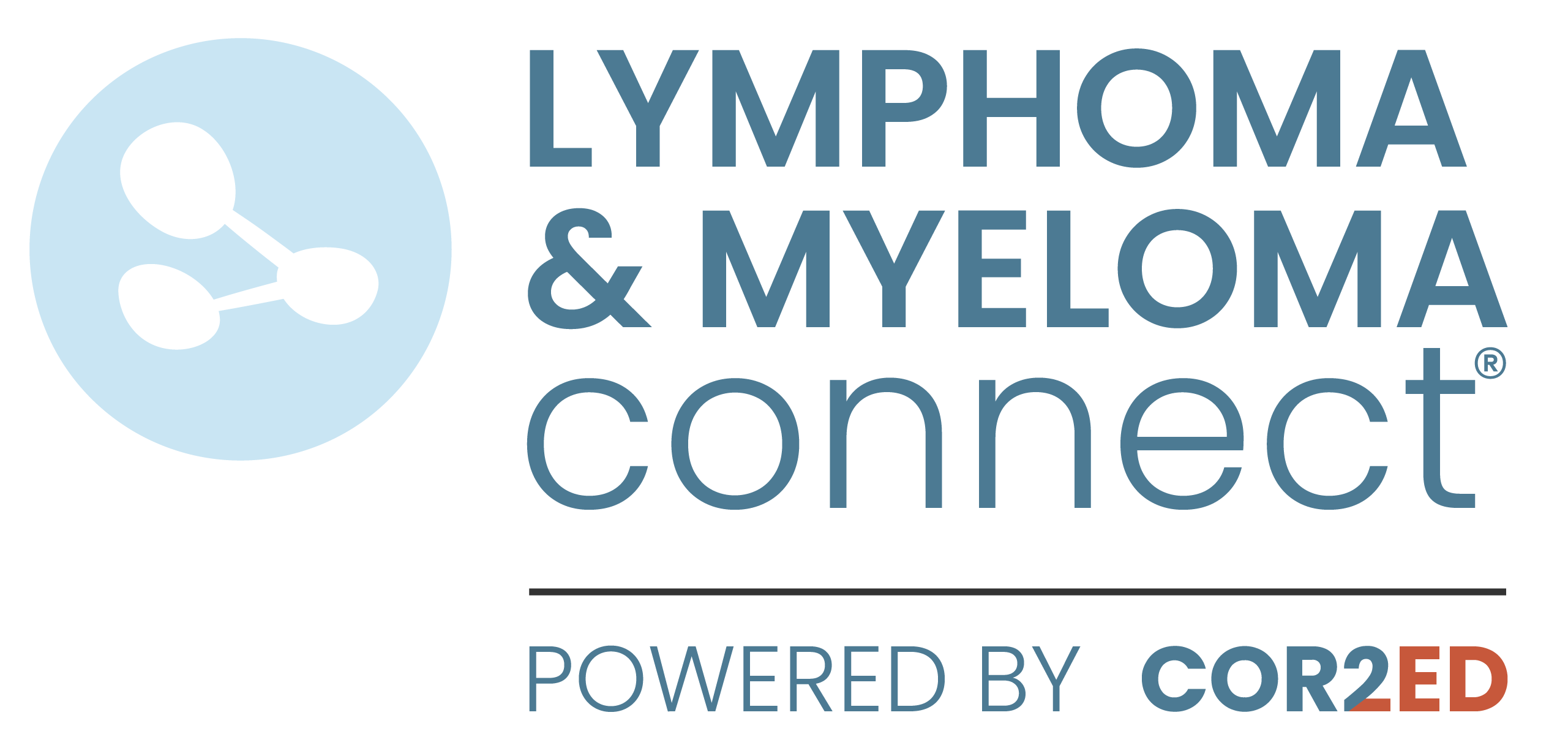


 Downloadable
Downloadable  3 MIN
3 MIN
 Jun 2025
Jun 2025 